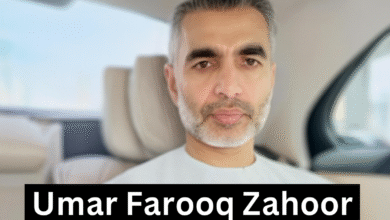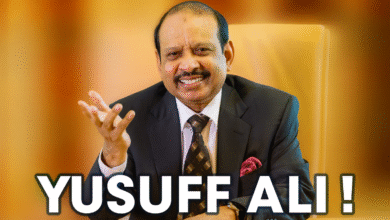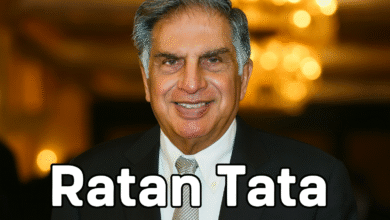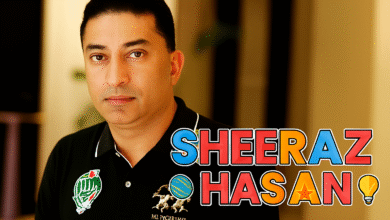Badr Al Olama: The Strategic Visionary Shaping Abu Dhabi’s Industrial and Investment Future
How One Emirati Leader Is Driving Aerospace, Logistics, and Global Innovation from the UAE
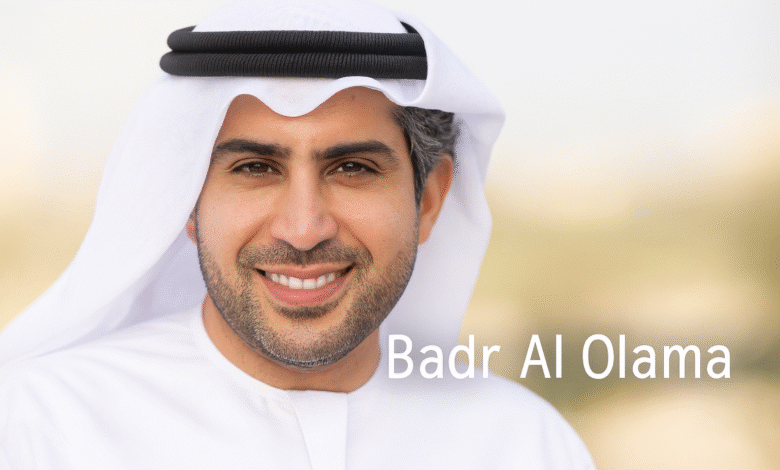
Introduction
Badr Al Olama is a name synonymous with transformation in the UAE’s industrial and economic landscape. With a sharp legal mind and visionary leadership, he has played pivotal roles in aerospace, logistics, and investment sectors. From heading Mubadala’s industrial ventures to steering the Abu Dhabi Investment Office (ADIO), his influence spans strategic policy, global partnerships, and innovation-driven growth.
A Harvard-trained legal expert, Badr Al Olama’s journey from legal consultancy to becoming one of the UAE’s most respected executive leaders highlights a career built on purpose, discipline, and strategic execution.
Quick Bio
| Attribute | Details |
|---|---|
| Full Name | Badr Salim Sultan Al Olama |
| Year of Birth | 1980 (approx. 45 years old) |
| Nationality | Emirati |
| Education | LL.B (UAEU), LL.M (Harvard Law School) |
| Career Start | Legal Consultant at Habib Al Mulla & Co |
| Major Roles | ADIO Director General, Chairman at Emirates Post, Former CEO of Strata |
| Key Fields | Aerospace, Investment, Technology, Logistics |
Badr Al Olama was born in 1980 and raised in the United Arab Emirates. From the beginning, he showed a deep intellectual capacity and a desire to work at the intersection of governance and innovation. His early academic pursuits led him to earn a Bachelor of Law degree in Sharia and Law from the United Arab Emirates University in 2002.
Driven by an ambition to contribute meaningfully to his country’s development, he went on to complete his Master of Laws (LL.M) at Harvard Law School in 2005. This prestigious education provided him with a global legal framework and analytical tools that would later prove vital in his leadership roles across sectors.
Starting a Career in Law and Governance
Badr Al Olama began his professional career as a legal consultant at Habib Al Mulla & Co., one of the UAE’s premier law firms. During this period, he gained valuable insights into regulatory frameworks, business law, and investment practices. His ability to understand complex legal systems and translate them into practical business strategies quickly gained recognition.
This experience laid the foundation for his shift into executive leadership, where he would begin to shape national and international strategies from within some of the UAE’s largest government-backed organisations.
Leadership at Mubadala and Strata Manufacturing
One of Al Olama’s most significant career milestones came when he joined Mubadala Investment Company, a sovereign wealth fund driving Abu Dhabi’s economic diversification. He quickly rose to become the Executive Director of the UAE Clusters unit, managing portfolios in aerospace, healthcare, and technology.
He served as the CEO of Strata Manufacturing, transforming it into a global supplier for aerospace giants like Boeing and Airbus. Under his leadership, Strata evolved into a symbol of the UAE’s ability to compete in advanced manufacturing, establishing the emirate’s credibility as a hub for high-tech industrial capabilities.
Chairmanship at Emirates Post Group
In 2021, Badr Al Olama was appointed Chairman of Emirates Post Group, the UAE’s national postal and logistics provider. His leadership marked a turning point in the organisation’s strategy. He led a major digital transformation, modernised operations, and initiated partnerships to extend logistics capabilities beyond national borders.
Focusing on e-commerce, last-mile delivery, and AI integration, Al Olama has redefined the role of postal services in the digital age. His leadership has positioned Emirates Post as not just a logistics player, but a key driver of UAE’s connectivity and commerce infrastructure.
Directing Abu Dhabi Investment Office (ADIO)
In July 2024, Badr Al Olama was appointed as Director General of the Abu Dhabi Investment Office (ADIO). This role placed him at the centre of efforts to diversify Abu Dhabi’s economy through foreign direct investment, innovation clusters, and strategic international partnerships.
At ADIO, Al Olama focuses on enabling investors with infrastructure, incentives, and regulatory support to enter high-growth sectors such as advanced manufacturing, renewable energy, fintech, and health technology. His legal and industrial background provides a unique advantage in aligning investment goals with long-term economic sustainability.
Strategic Roles and Global Contributions
Beyond his formal roles, Badr Al Olama plays a key part in multiple boards and international forums. He is the chair of the Global Manufacturing and Industrialisation Summit (GMIS), a joint initiative of the UAE and UNIDO aimed at accelerating Fourth Industrial Revolution technologies.
He also serves on the boards of Yahsat, Mubadala Health, Yas Holding, and Emirates Pharmaceutical Corporation, reflecting his wide-ranging impact across aerospace, healthcare, and technology sectors. His leadership consistently promotes collaboration between private innovation and public policy.
Recent Developments and Future Plans
In 2024 and 2025, Al Olama has been focused on integrating emerging technologies such as eVTOL (electric vertical take-off and landing aircraft) into the UAE’s future transportation ecosystem. He is collaborating with global aerospace companies to explore urban air mobility solutions for Abu Dhabi.
Meanwhile, his work at ADIO continues to attract strategic investment from global firms, particularly in clean energy, AI, and mobility. These efforts support the UAE’s long-term vision to be a global leader in sustainable innovation.
Vision for the UAE’s Future
Badr Al Olama envisions a UAE that thrives not just as a financial hub, but as a center for advanced manufacturing, smart infrastructure, and digital excellence. His leadership reflects the new generation of Emirati policymakers who balance tradition with modernity and local development with global connectivity.
He continues to mentor young Emiratis, encouraging them to participate in building the nation’s knowledge economy. His belief in local capacity-building is evident in all his initiatives, making him a crucial figure in the UAE’s ongoing economic transformation.
FAQs about Badr Al Olama
Q1: What is Badr Al Olama currently doing?
He is the Director General of the Abu Dhabi Investment Office and Chairman of Emirates Post Group.
Q2: What are his major achievements?
He transformed Strata into a global aerospace supplier and led Emirates Post through digital reform. He also leads GMIS and ADIO.
Q3: What is his educational background?
He holds a law degree from UAE University and an LL.M from Harvard Law School.
Q4: What sectors does he influence?
He works across aerospace, healthcare, technology, logistics, and foreign investment.
Q5: Why is Badr Al Olama influential?
His leadership connects UAE economic policies with global innovation, helping shape the country’s long-term strategic growth.
